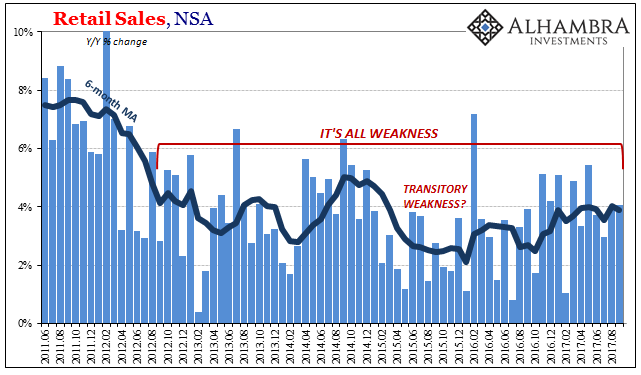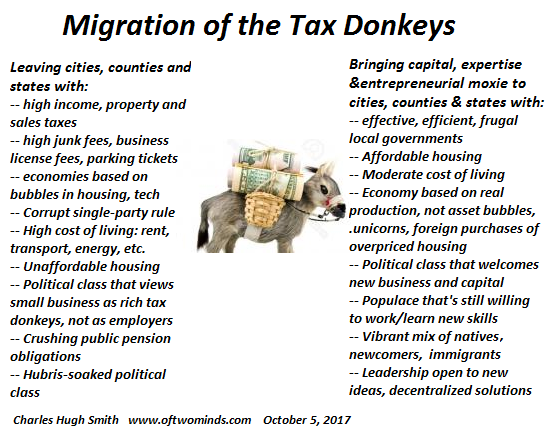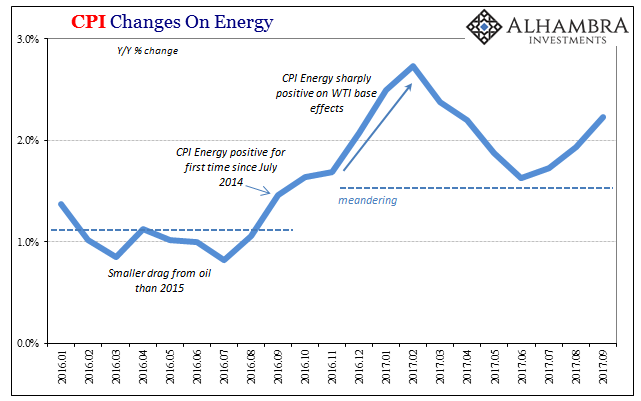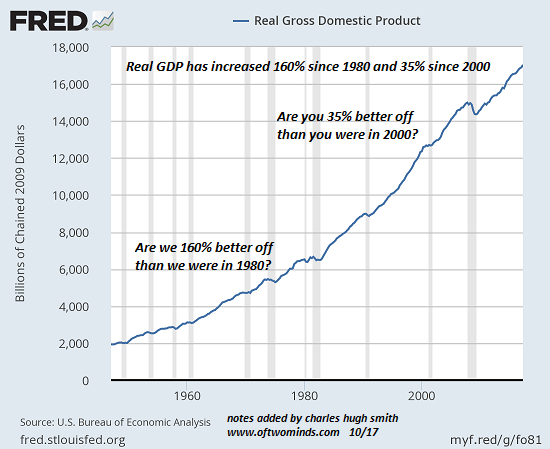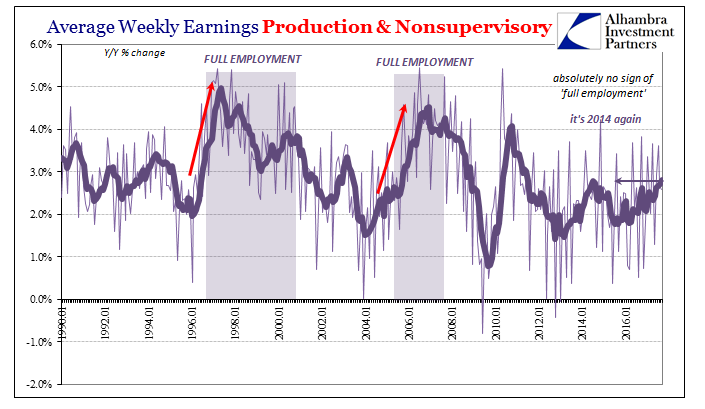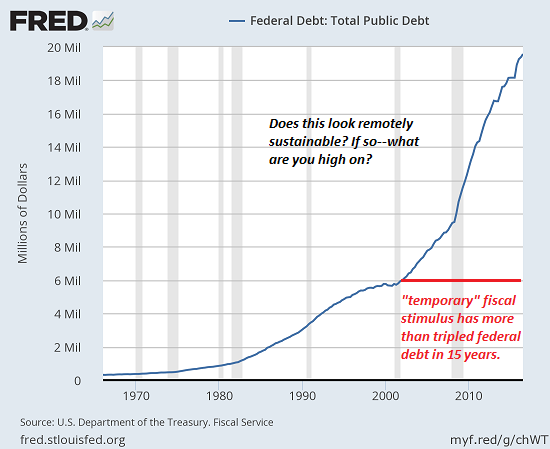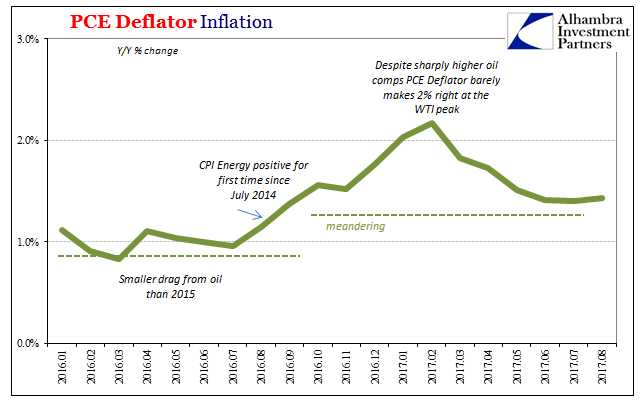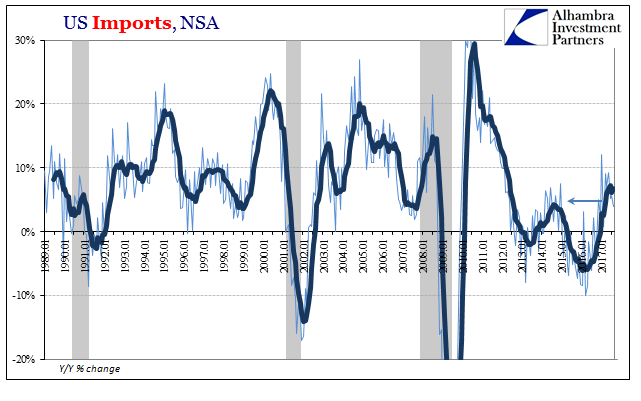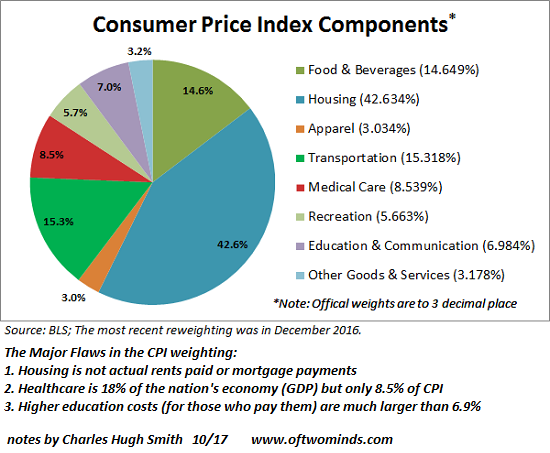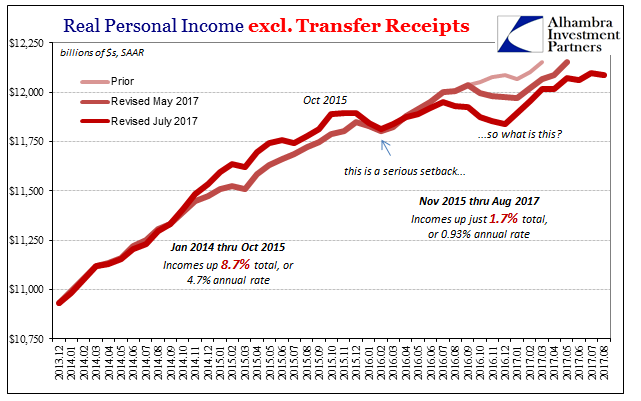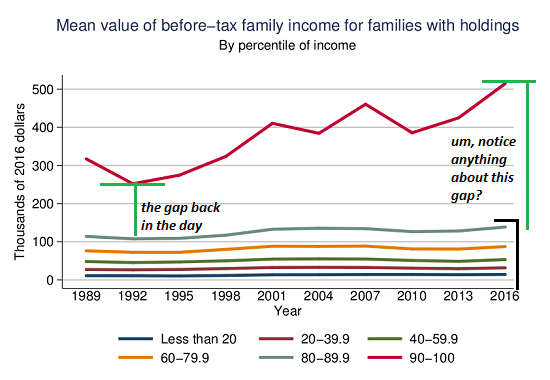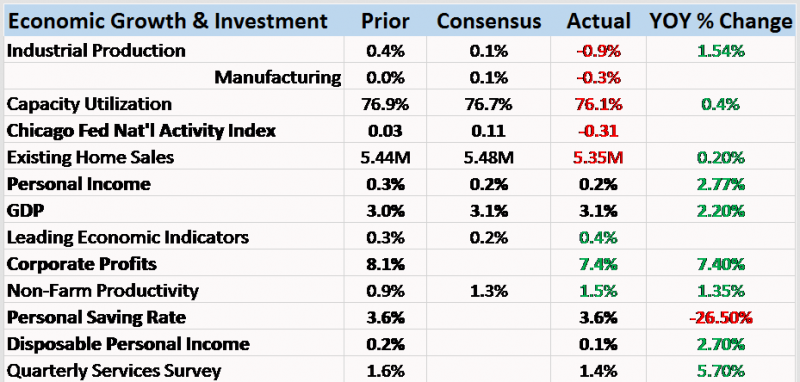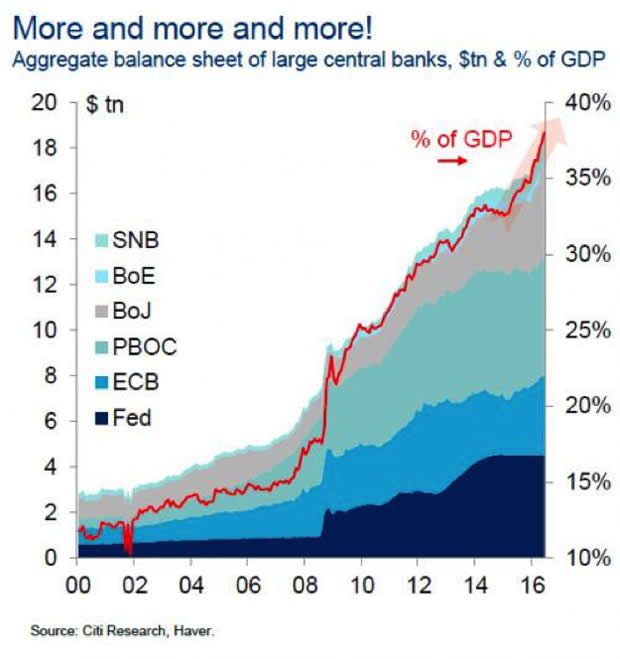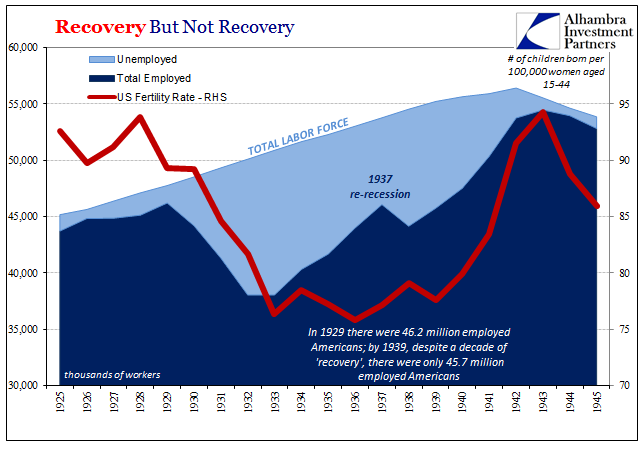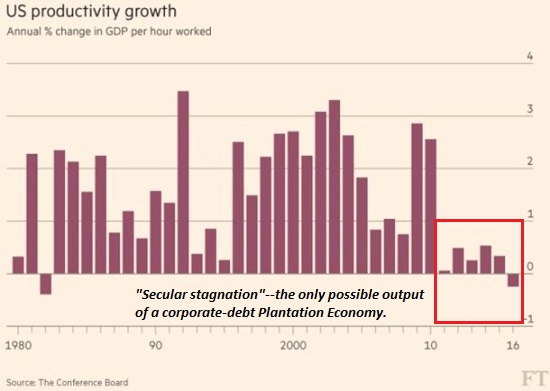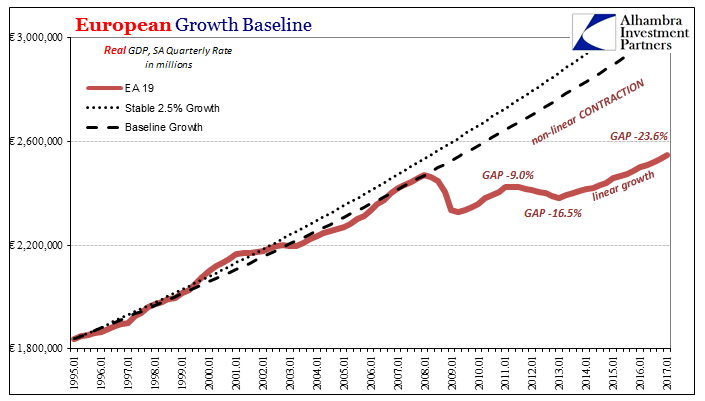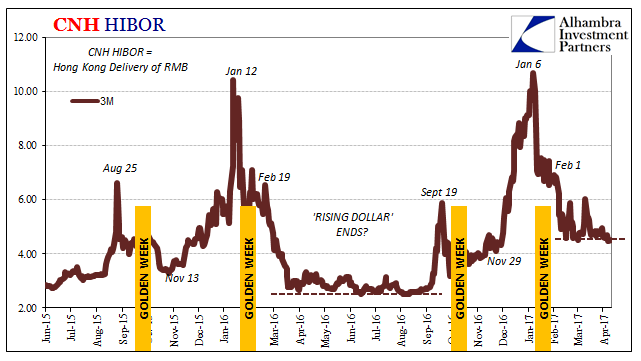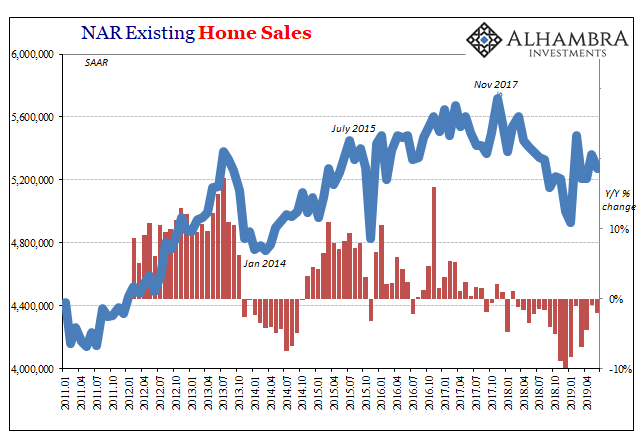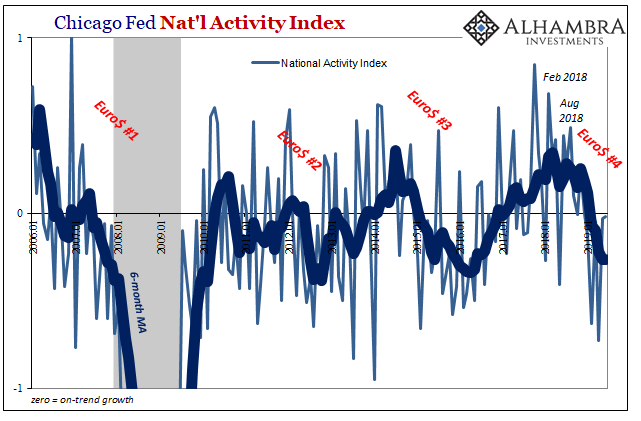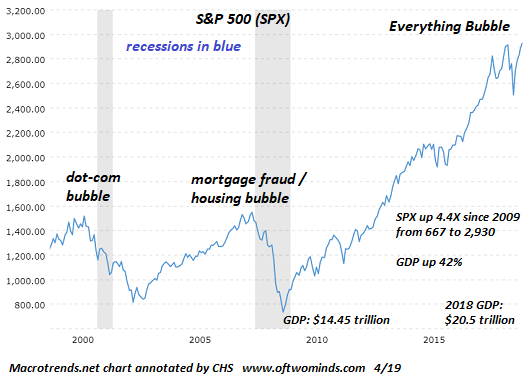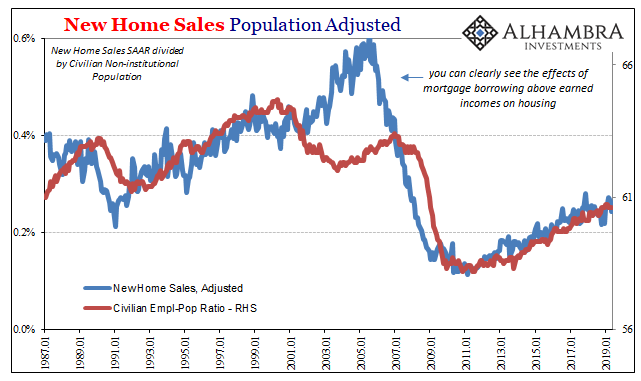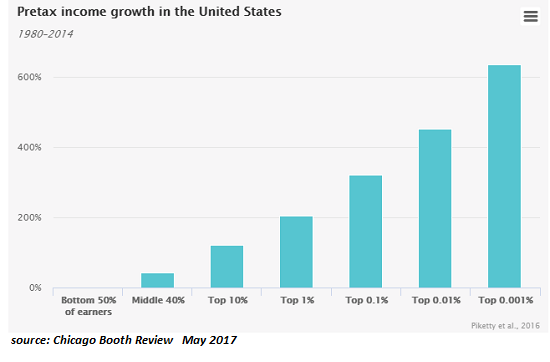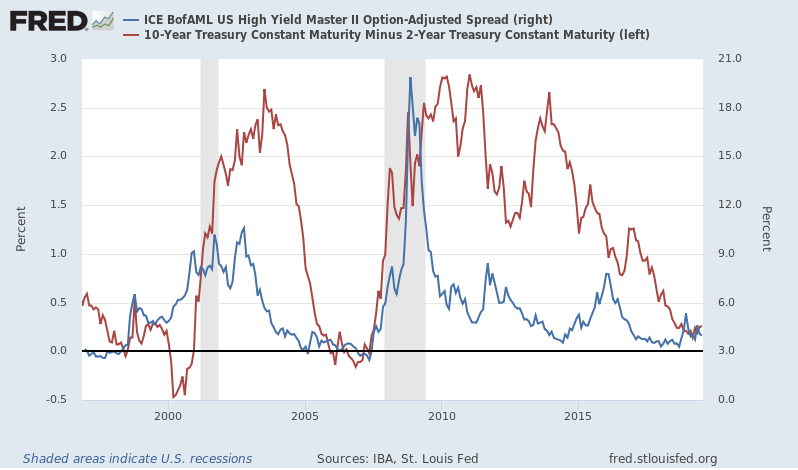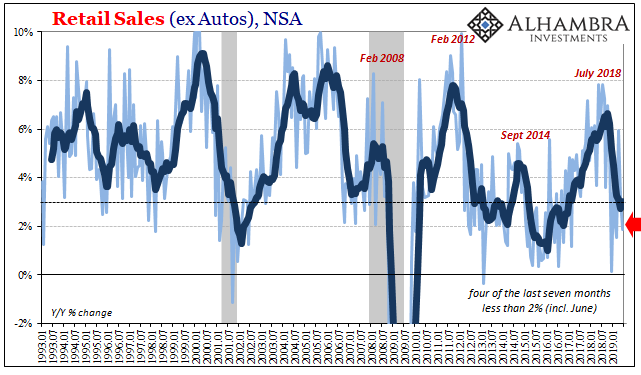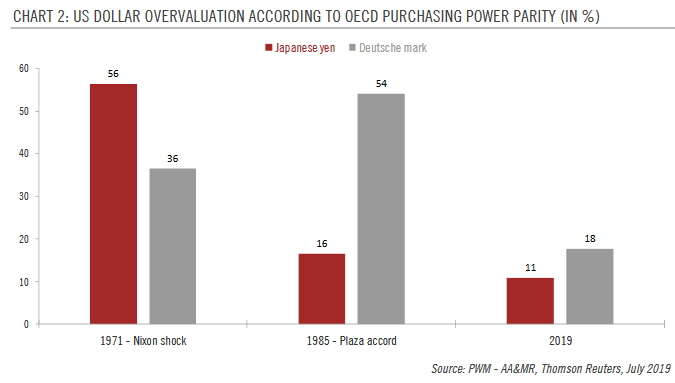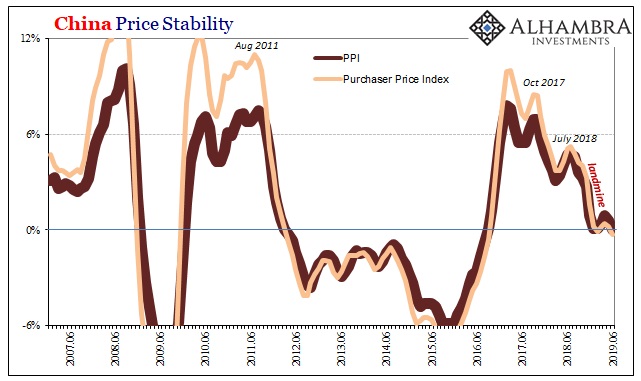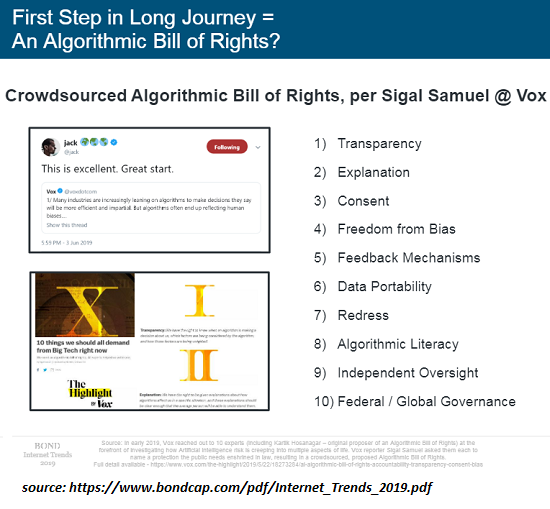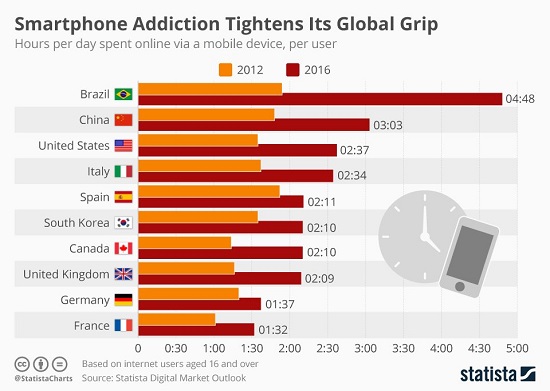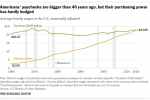Category Archive: 5.) The United States
About Those “Hedonic Adjustments” to Inflation: Ignoring the Systemic Decline in Quality, Utility, Durability and Service
The quality, durability, utility and enjoyment-of-use of our products and services has been plummeting for years. One of the more mysterious aspects of the official inflation rate is the hedonic quality adjustments that the Bureau of Labor Statistics makes to the components of the Consumer Price Index (CPI). The basic idea is that when innovations improve the utility (and pleasure derived from) a product, the price is adjusted to reflect this...
Read More »
Read More »
US Retail Sales: Retail Storms
Retail sales were added in September 2017 due to the hurricanes in Texas and Florida (and the other states less directly impacted). On a monthly, seasonally-adjusted basis, retail sales were up a sharp 1.7% from August. The vast majority of the gain, however, was in the shock jump in gasoline prices. Retail sales at gasoline stations rose nearly 6% month-over-month, so excluding those sales retail sales elsewhere gained a far more modest 0.6%.
Read More »
Read More »
Migration of the Tax Donkeys
Dear local leadership: here's the formula for long-term success. A Great Migration of the Tax Donkeys is underway, still very much under the radar of the mainstream media and conventional economists. If you are confident no such migration of those who pay the bulk of the taxes could ever occur, please consider the long-term ramifications of these two articles.
Read More »
Read More »
US CPI: Inflation Still Isn’t About Inflation
The US Consumer Price Index (CPI) rose back above 2% in September 2017 for the first time since April. Boosted yet again by energy prices, consumer prices overall still aren’t where the Fed needs them to be (by its own policies, not consumer reality). In fact, despite a 10.2% gain in the energy price index last month, the overall CPI just barely crossed the 2% mark (though for the Fed it really needs to be closer to 3% to match a 2% PCE Deflator).
Read More »
Read More »
Are You Better Off Than You Were 17 Years Ago?
We tend to measure what's easily measured (and supports the status quo) and ignore what isn't easily measured (and calls the status quo into question). If we use gross domestic product (GDP) as a broad measure of prosperity, we are 160% better off than we were in 1980 and 35% better off than we were in 2000. Other common metrics such as per capita (per person) income and total household wealth reflect similarly hefty gains.
Read More »
Read More »
The Payroll Report To Focus On Is August’s, Not September’s
The hurricanes didn’t disappoint, causing major damage at least to the BLS. Precisely how much the statistics were affected by the disruptions in Texas and Florida really can’t be calculated, not that everyone won’t try. It makes this month’s payroll report a Rorschach test of sorts. You can pretty much make it out to be whatever you want.
Read More »
Read More »
The Consent of the Conned
Every single line item in our entire Bernie Madoff scam of a system is cooked. My theme this week is The Great Unraveling, by which I mean the unraveling of our social-political-economic system of hierarchical, centralized power. Let's start by looking at how the basis of governance has transmogrified from consent of the governed to consent of the conned.
Read More »
Read More »
Non-Transitory Meandering
Monetary officials continue to maintain that inflation will eventually meet their 2% target on a sustained basis. They have no other choice, really, because in a monetary regime of rational expectations for it not to happen would require a radical overhaul of several core theories. Outside of just the two months earlier this year, the PCE Deflator has missed in 62 of the past 64 months. The FOMC is simply running out of time and excuses.
Read More »
Read More »
The Damage Started Months Before Harvey And Irma
Ahead of tomorrow’s payroll report the narrative is being set that it will be weak because of Harvey and Irma. Historically, major storms have had a negative effect on the labor market. Just as auto sales were up sharply in September very likely because of the hurricane(s) and could remain that way for several months, payrolls could be weak for the same reasons and the same timeframe.
Read More »
Read More »
Be Careful What You Wish For: Inflation Is Much Higher Than Advertised
What the Federal Reserve is actually whining about is not low inflation--it's that high inflation isn't pushing wages higher like it's supposed to. It's not exactly a secret that real-world inflation is a lot higher than the official rates--the Consumer Price Index (CPI) and Personal Consumption Expenditures PCE).
Read More »
Read More »
Auto Sales Up Last Month, But Why?
Auto sales rebounded sharply in September, with most major car manufacturers reporting better numbers. Sales at Ford were up 8.9% last month from September 2016; +11.9% at GM; Toyota +14.9%; Nissan +9.5%; Honda +6.8%. The only negatives were reported by FCA (-9.7%) and Mercedes (-1.7%).
Read More »
Read More »
Incomes Are What Matters, So Bad Month, Bad Year, Bad Decade
Sometimes economics can be complicated, such as why the labor market has slowed in such lingering fashion since early 2015. Sometimes economics can be easy, such as why there is so much less to the economy this year than thought. The easy part relates to the hard part. The labor market slowed and so did national income. Though so much of official focus is on debt supplementation, it’s always, always about income.
Read More »
Read More »
What If the Tax Donkeys Rebel?
I would hazard a guess that an increasing number of tax donkeys are considering dropping out as a means of increasing their happiness and satisfaction with life. Since federal income taxes are in the spotlight, let's ask a question that rarely (if ever) makes it into the public discussion: what if the tax donkeys who pay most of the tax rebel? There are several likely reasons why this question rarely arises.
Read More »
Read More »
Bi-Weekly Economic Review: Maximum Optimism?
The economic reports of the last two weeks were generally of a more positive tone. The majority of reports were better than expected although it must be noted that many of those reports were of the sentiment variety, reflecting optimism about the future that may or may not prove warranted. Markets have certainly responded to the dreams of tax reform dancing in investors’ heads with US stock markets providing a steady stream of all time highs, bond...
Read More »
Read More »
Surprise! The Rules Will Change (But Not to Your Benefit)
These expedient fixes end up crippling the mechanisms that are needed to actually solve the systemic sources of the crisis. We can add a third certainty to the two standard ones (death and taxes): The rules will suddenly change when a financial crisis strikes. Why is this a certainty? The answer is complex, as it draws on human nature, politics and the structure of societies/economies ruled by centralized states (governments).
The Core Imperative...
Read More »
Read More »
US: Reflation Check
There is a difference between reflation and recovery. The terms are similar and relate to the same things, but in many ways the latter requires first the former. To get to recovery, the economy must reflate if in contraction it was beaten down in money as well as cyclical forces. In the Great Crash of 1929 and after, reflation was required because of the wholesale devastation of the money supply.
Read More »
Read More »
This Chart Defines the 21st Century Economy
There is nothing inevitable about such vast, fast-rising income-wealth inequality; it is the only possible output of our financial and pay-to-play political system. One chart defines the 21st century economy and thus its socio-political system: the chart of soaring wealth/income inequality. This chart doesn't show a modest widening in the gap between the super-wealthy (top 1/10th of 1%) and everyone else: there is a veritable Grand Canyon between...
Read More »
Read More »
Stagnation Is Not Just the New Normal–It’s Official Policy
Japan is a global leader is how to gracefully manage stagnation. Although our leadership is too polite to say it out loud, they've embraced stagnation as the new quasi-official policy. The reason is tragi-comically obvious: any real reform would threaten the income streams gushing into untouchably powerful self-serving elites and fiefdoms.
Read More »
Read More »
Eurozone: Distinct Lack of Good Faith
The erosion of social order in any historical or geographic context is gradual; until it isn’t. Germany has always followed a keen sense of this process, having experienced it to every possible extreme between the World Wars. Hyperinflationary collapse doesn’t happen overnight; it took three years for the Weimar mark to disintegrate, and then Weimar Germany. Even Nazism wasn’t all it once. What was required was continued denial especially on the...
Read More »
Read More »
Location Transformation or HIBORMania
The Communist Chinese established their independence on September 21, 1949. The grand ceremony commemorating the political change was held in Tiananmen Square on October 1 that year. The following day, October 2, the Resolution on the National Day of the People’s Republic of China was passed making October 1to be China’s National holiday. It typically kicks off the second of China’s Golden Week holidays. The first relates to the Chinese New Year...
Read More »
Read More »










